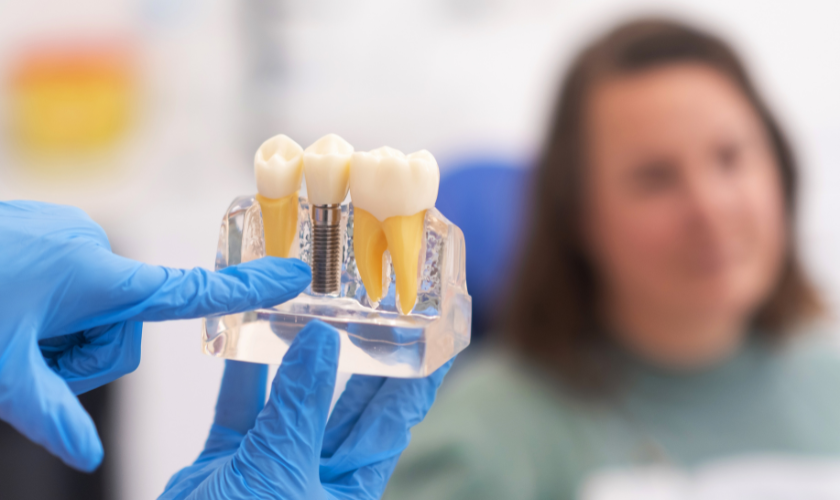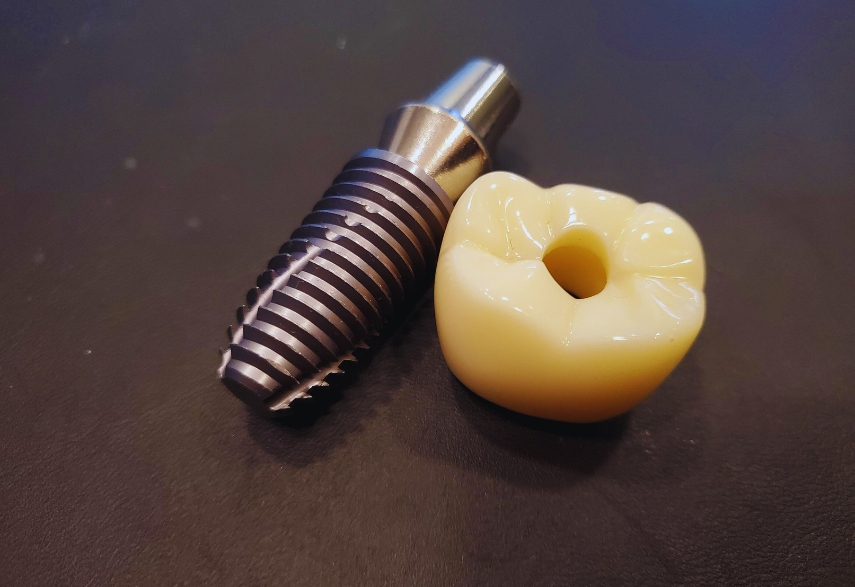1516 Legacy Cir, Naperville, IL 60563
Risk Factors for Implant Failure: A Comprehensive Guide

Implants, whether dental, orthopedic, or cosmetic, have become a cornerstone of modern medical treatments, offering long-term solutions for various health issues. While the success rates for these procedures are generally high, failures can occur, leading to significant physical, emotional, and financial distress for patients. This comprehensive guide will explore the myriad risk factors associated with implant failure, offering insights and strategies to minimize these risks.
What are Implants?
Dental implants are a modern solution for replacing missing or damaged teeth, offering a durable and natural-looking alternative to traditional dentures or bridges. Essentially, a dental implant is a small, titanium post that serves as a substitute for the root part of a missing tooth. This post is surgically inserted into the jawbone beneath the gums. Once in place, it provides a strong foundation upon which replacement teeth, or crowns, can be mounted.
Unlike dentures, which can be removed, dental implants are fixed in the jawbone, making them a permanent solution. The titanium used in the implants is biocompatible, meaning it’s rarely rejected by the body and allows the bone to grow around it, a process known as osseointegration. This integration helps stabilize the implant further and mimics the natural function and feel of a real tooth.
The process of getting dental implants involves several steps. Initially, a detailed examination is conducted to ensure the patient’s jawbone is adequate to support the implants, and to plan the procedure. If the bone is too thin or soft, a bone graft might be necessary to provide a more solid base for the implant. Once the jawbone is prepared and heals, the titanium post is implanted. After the post bonds with the bone, a connector called an abutment is placed on top of the post to hold the new tooth.
The final step involves creating and attaching the artificial tooth or teeth to the abutment. The new teeth are custom-made to match the natural color and shape of the patient’s existing teeth, making them virtually indistinguishable from the originals.
Dental implants not only improve the aesthetics of one’s smile but also enhance functionality, allowing for easier eating and speaking. They can also prevent bone deterioration and preserve facial structure, providing long-term benefits and improving quality of life.
Why Do Implants Fail?
Implant failures can be broadly classified into early and late failures. Early failures occur shortly after the surgery and are often due to surgical technique, infection, or the immediate biological response of the host. Late failures, on the other hand, tend to occur years after the procedure and can be attributed to mechanical wear, long-term biological effects, or systemic health issues.
Risk Factors for Implant Failure
Understanding the risk factors is key to prevention. These risk factors can be biological, mechanical, or related to patient behaviors.
Biological Risk Factors
- Infections: The presence of bacteria during or after surgery can lead to severe infections, compromising the implant.
- Bone Quality and Density: Poor bone quality or low bone density can hinder the integration of the implant with the bone, leading to failure.
- Autoimmune Diseases: Conditions like rheumatoid arthritis or lupus can affect the body’s ability to heal and maintain implant integrity.
- Patient Age: Age can influence the healing capacity of the body, impacting the success of implants.
Mechanical Risk Factors
- Poor Implant Design or Material: The quality and design of the implant play crucial roles in its longevity and functionality.
- Surgical Technique: Improper placement or alignment during surgery can lead to implant failure.
- Overloading: Excessive force or pressure on the implant can cause mechanical failure.
Lifestyle and Behavioral Risk Factors
- Smoking: Smoking can impair blood flow and wound healing, significantly increasing the risk of implant failure.
- Poor Oral Hygiene: In the case of dental implants, poor oral hygiene can lead to peri-implantitis, a destructive inflammatory process affecting the soft and hard tissues surrounding the implant.
- High Impact Activities: Engaging in high-impact sports or activities can jeopardize the integrity of an implant.
Preventative Measures
To mitigate these risks, patients and healthcare providers must collaborate closely from pre-surgery planning through to post-operative care.
Pre-Surgical Planning
- Thorough Medical Evaluation: Assessing the patient’s overall health and specific risk factors can guide personalized treatment planning.
- Choosing the Right Implant and Technique: Utilizing the best-suited implant and surgical techniques can significantly reduce mechanical failure risks.
Post-Surgical Care
- Strict Adherence to Care Regimens: Following the prescribed post-operative care and routine check-ups can prevent infections and ensure early detection of potential issues.
- Lifestyle Adjustments: Making necessary lifestyle changes, such as quitting smoking or adjusting diet, can enhance the success rate of implant procedures.
Long-Term Management and Monitoring
Regular monitoring and management of health conditions, along with routine maintenance of the implant site, are essential for ensuring the longevity of the implant.
FAQ Section
Q1: How common is implant failure?
A1. Implant failure rates vary depending on the type of implant and the patient’s health conditions. For instance, dental implants have a success rate of about 95%, while certain other types may have lower success rates.
Q2: Can implant failure be completely prevented?
A2. While not all implant failures can be prevented, understanding and mitigating risk factors can significantly reduce the likelihood of failure.
Q3: What should I do if I suspect my implant is failing?
A3. If you suspect an issue with your implant, contact our dental expert Naperville provider immediately for an assessment. Early intervention is key to resolving potential problems.
Q4: Are there alternatives to implants?
A4. Alternatives may be available depending on the type of implant and the specific medical condition. Discuss all options with your healthcare provider.
While the prospect of an implant failing can be daunting, understanding the associated risk factors and engaging in proactive management can greatly improve outcomes. Patients should work closely with their healthcare providers to tailor prevention strategies to their specific needs.










